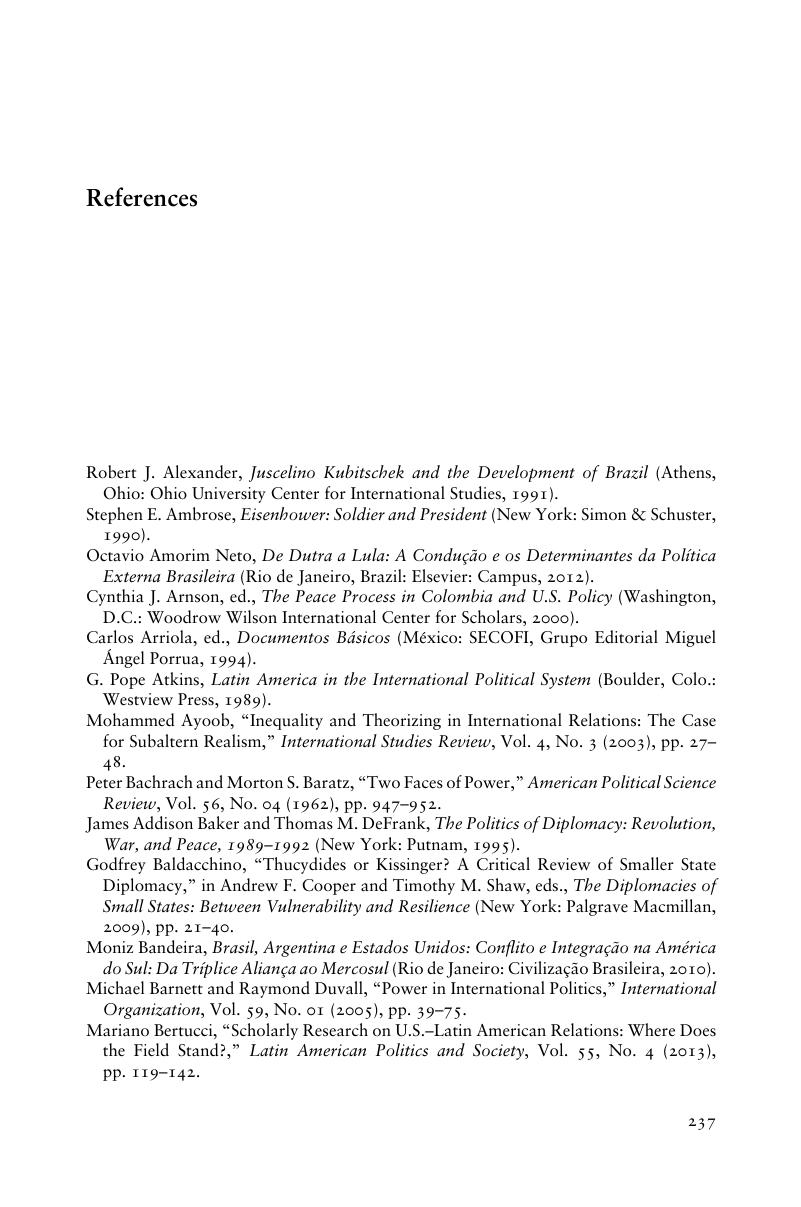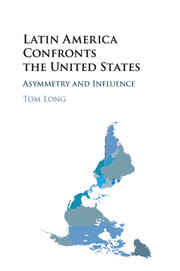Book contents
- Latin America Confronts the United StatesAsymmetry and Influence
- Reviews
- Latin America Confronts the United States
- Copyright page
- Dedication
- Contents
- Book part
- 1 Asymmetry, Influence, and U.S.–Latin American Relations
- 2 Operação Pan-Americana
- 3 Completing the Nation
- 4 A Recalculation of Interests
- 5 An Urgent Opportunity
- 6 Conclusions
- References
- Index
- References
References
Published online by Cambridge University Press: 05 December 2015
- Latin America Confronts the United StatesAsymmetry and Influence
- Reviews
- Latin America Confronts the United States
- Copyright page
- Dedication
- Contents
- Book part
- 1 Asymmetry, Influence, and U.S.–Latin American Relations
- 2 Operação Pan-Americana
- 3 Completing the Nation
- 4 A Recalculation of Interests
- 5 An Urgent Opportunity
- 6 Conclusions
- References
- Index
- References
Summary

- Type
- Chapter
- Information
- Latin America Confronts the United StatesAsymmetry and Influence, pp. 237 - 250Publisher: Cambridge University PressPrint publication year: 2015



